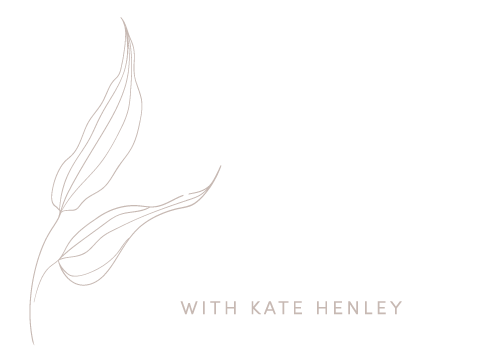Does acupuncture really work for the menopause?
The menopause is the time in women’s lives when their periods stop due to a change in their hormone levels. The average age for this transition is between 45 and 55. Sometimes this happens earlier naturally or after surgical removal of the ovaries or the uterus (hysterectomy) or after cancer treatment.
The perimenopause is the period in your life when you have symptoms before your periods stop and can occur for up to 10 years before cessation of bleeding. The symptoms of both of these phases of life include: hot flushes, night sweats, anxiety, mood swings, irregular periods, fatigue, brain fog, joint pain, vaginal dryness and insomnia, to name a few. Some women experience debilitating physical and emotional symptoms that affect the quality of their lives, their work and their relationships.
HRT & The Western aPPROACH
The Western approach to supporting the menopause is to prescribe Hormone Replacement Therapy (HRT) which can replace some of the changing hormone profile or anti-depressants which can ease emotional deregulation. There has been a lot of studies to evaluate the safety and efficacy of HRT and in the UK it is seen to carry a low risk for most women and particularly if offered after a consultation to establish individual hormone levels and needs.
Can acupuncture reverse THE menopause?
For those that are unable or unwilling to use HRT, Eastern medicine can offer a very real alternative. Acupuncture can be used to re-balance the body’s hormone profile by supporting the central nervous system in the body.
So even though acupuncture cannot reverse the natural transition to menopause, it offers a credible way of balancing the body and easing symptoms.
Can acupuncture help with night sweats and hot flashes? And how long does it take?
In Kate’s experience of over 2 decades working in this area, 4-6 sessions of acupuncture for menopause is effective at calming the ‘fight or flight’ mechanism in the body where we feel adrenalized and experience higher levels of cortisol. This in turn has the effect of regulating hormone production. When this treatment is used in conjunction with lifestyle guidance it is highly effective at lessening symptoms of hot flashes / flushes, night sweats, anxiety and insomnia.
The study published in the British Medical Journal by Kamma Sundgaard Lund et al investigated the efficacy of acupuncture for 70 women with moderate to severe menopausal symptoms. In the group that received acupuncture, 80% of women reported a general beneficial treatment effect.
In Kate’s Clinic, this work also involves a very holistic look into diet and lifestyle, as well as the emotional profile. She will often recommend a diet that avoids processed foods and high levels of alcohol and recommend moderation with a diet with plenty of fresh, organic, seasonal foods and good water intake. Exercise and quietening the body is also helpful for supporting this transition. In addition, a look at frustrations and stressors in women’s lives is key to good emotional health which feeds into more balance in the hormone transition.
Anxiety
Kate will take each symptom and support with acupuncture and additional advice. With anxiety, which is often seen as fear of the future, we will take a look at the triggering issues and how to respond to them. You will be encouraged to spend time in nature and to spend more time doing things that give you joy. We will look at foods that support this too.
Mood swings
With mood swings, we will take a look at caffeine and sugar intake as this generally exacerbates irritability and frustration. We will see when these occur and work with them to calm the emotional response. With fatigue, we look at optimising the diet to give energy. This often means eating warmer food and a larger breakfast and a smaller evening meal and exercising in the late morning.
Insomnia
With insomnia, often called ‘the disease of non-processing’, we look at ‘downloading’ the day through writing, quietening the nervous system during the daytime and having a technology free evening ahead of rest. In Chinese Medicine, our energy should peak at lunchtime and start falling by the evening, ready to sleep.
Vaginal dryness
And finally with vaginal dryness, oestrogen promoting foods are considered and a look at promoting libido to encourage regular sexual activity. Once the body becomes more balanced, menopausal symptoms tend to lessen and fade into the background.
So to conclude, acupuncture has been shown to be a very powerful tool to support the side effects of the menopausal transition. It cannot however, reverse the process of this change but is uniquely placed to encourage a smooth passage through this time, both physically and emotionally. In fact, the Chinese believe that this period in women’s lives can be the most empowering and vibrant experience.
Are you experiencing perimenopausal or menopausal symptoms? Get in touch to discuss how acupuncture can help. Kate runs Clinics in St Albans and Harpenden if you are interested in booking an appointment.
Author
Kate Henley is the founder of ‘The Way of Living’, and has been an acupuncturist for 25 years. She is a full member of the British Acupuncture Council which is the UK’s largest regulatory body for practitioners of traditional acupuncture, and which guarantees high levels of safe practice and professional conduct. She also lectures at the City College of Acupuncture in Old Street, teaching aspiring acupuncturists the importance of the therapeutic relationship. She is passionate about collaborating with women to empower them to find their own way through their lives to support natural transitions.




